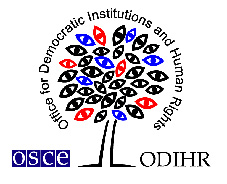
ODIHR Opinion on the appointment of Judges to the Supreme Court
By Levan Abramishvili
Thursday, April 18
On the request made by the Public Defender of Georgia, the OSCE Office for Democratic Institutions and Human Rights (ODIHR) published their expert opinion on the draft amendments relating to the appointment of Supreme Court of Judges of Georgia on April 17.
In the statement issued by the Ombudsman office, they expressed their gratitude towards ODIHR for their important work and quick reaction to their request. They have also expressed hope that the Georgian Parliament would take the recommendations into account.
The document details the aspects of the draft law and its compatibility with the international and regional standards, norms and practices, as well as Georgia’s responsibilities assumed within OSCE.
This Opinion was prepared by reputable experts, such as by Professor Andras Sajo, Central European University in Budapest and former judge of the European Court of Human Rights; Ms. Michele Rivet, C.M., Honorary Member and Former Vice-President of the International Commission of Jurists; and Mr. Jose Igreja Matos, President of the European Association of Judges and First Vice-President of the International Association of Judges.
The key recommendations listed in the Opinion are as follows:
- increase the number of years of professional experience to be eligible to Supreme Court judgeship and replace the requirement for non-judicial candidates to take the judicial qualification examination by other testing modalities applicable for all (judicial and non-judicial) candidates
- specify the selection criteria applicable at each stage of the appointment process;
- provide for additional qualities and expertise to be selected as Supreme Court judge, including extensive expertise in human rights;
- state that selection should be carried out without discrimination, while introducing mechanisms to ensure that the composition of the Supreme Court is more balanced in terms of gender and diversity;
- replace the system of selection of the candidates by the High Council of the Judiciary (HCJ) by secret ballot by a proper merits-based assessment, including of the hearing, and provide that the HCJ should prepare a summary of majority justification for the ranking of candidates and their nomination in light of the selection criteria;
- specifically provide that in case a HCJ member participates in the competition for Supreme Court judgeship, then she/he should not participate in the selection/nomination procedures for such post as a member of the HCJ or alternatively, require the said HCJ member to resign before applying for Supreme Court judgeship
- to provide for the possibility for unsuccessful candidates to challenge the HCJ decision before a judicial body
- to specify that the information collected about the candidates is destroyed after three years of time
- to better define the procedure and criteria for the nomination of the candidate Chief Justice by the HCJ and for the election of the Supreme Court judges and Chief Justice by the Parliament, while ensuring that Parliament’s role is limited to scrutinizing the procedural aspects of the selection/nomination undertaken by the HCJ
The Opinion was published a day after the recommendations issued by the Venice Commission. Both of the documents list the imperfections in the draft amendments proposed by the ruling majority.


